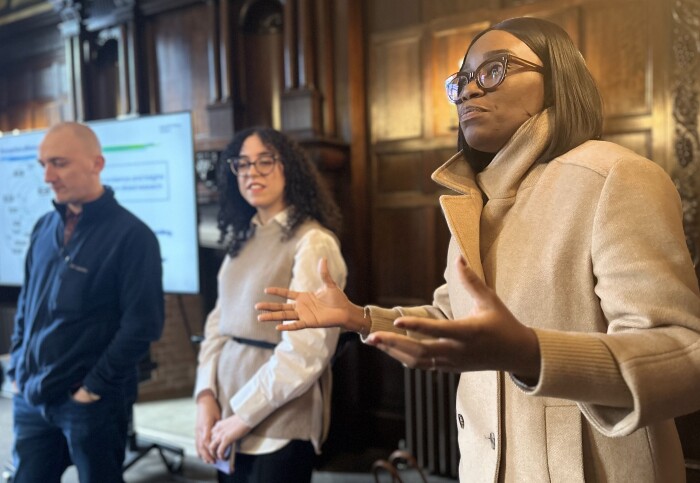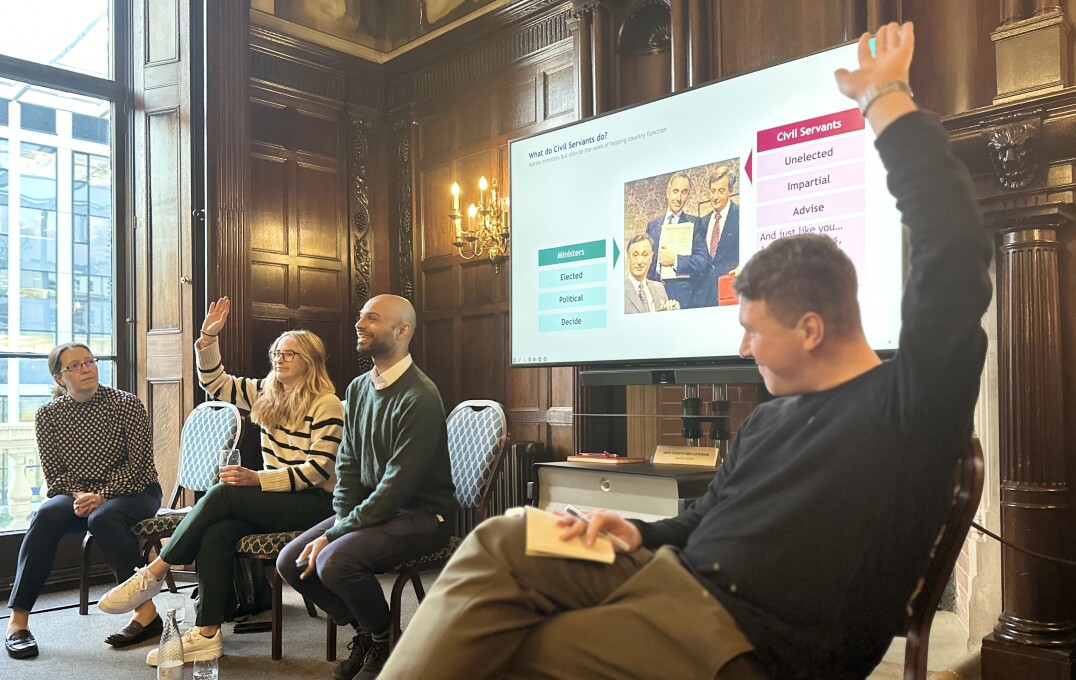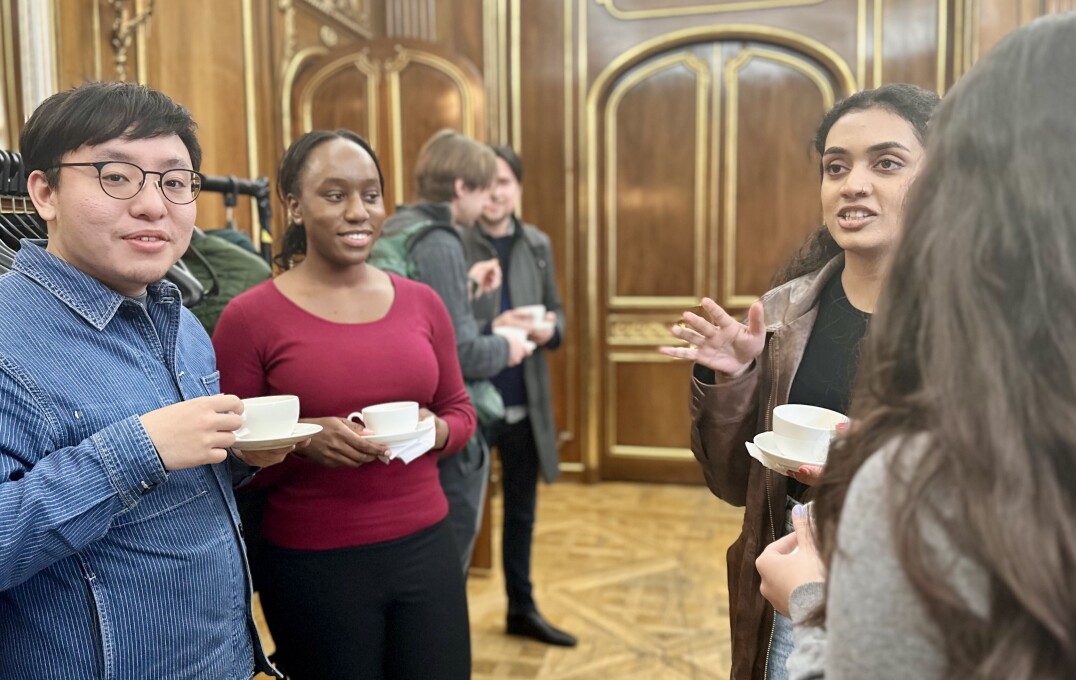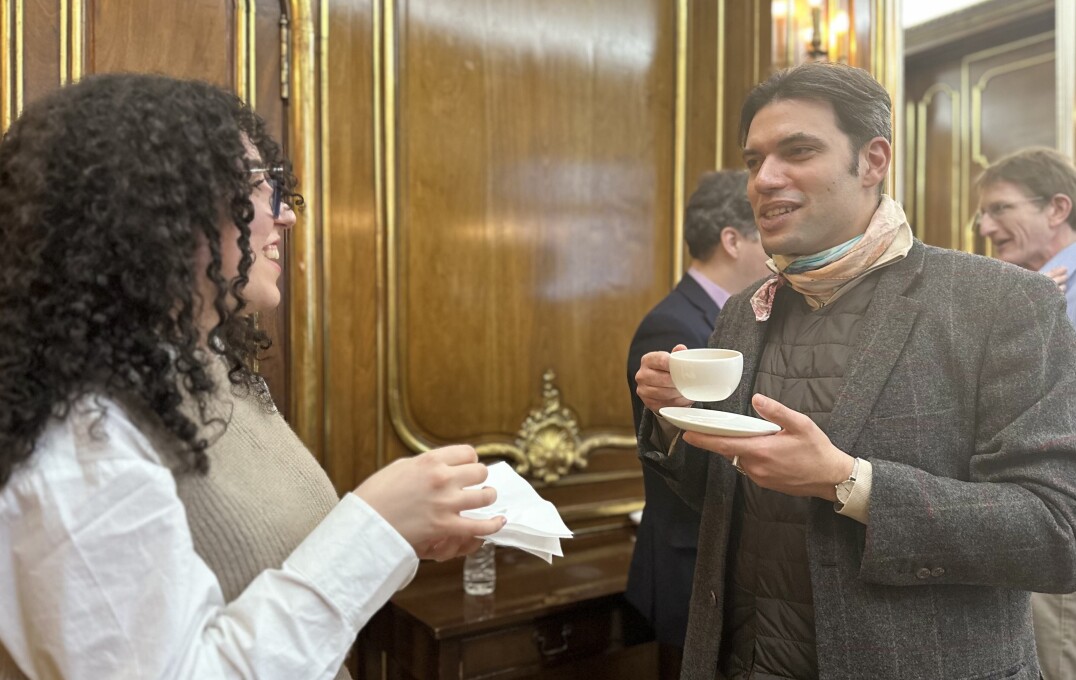QuEST hosts new workshop to inspire policy engagement

On Monday 22 January, QuEST hosted a workshop to highlight the importance of policy engagement.
This event formed part of The Centre for Quantum Engineering, Science and Technology's (QuEST) new aims to support Early Career Researchers and Research Postgraduates specialising in quantum technologies research.
The workshop featured a variety of presentations from researchers at Imperial College London and civil servants from the Department for Science, Innovation and Technology (DSIT), to highlight the importance of integrating policy engagement throughout a research career. A range of topics were discussed, including improving communication skills, focusing on research outcomes and learning about the work of the Imperial Policy Forum.
Exploring the importance of policy engagement
Professor Sandrine Heutz, Head of the Department of Materials, welcomed everyone to the event. She highlighted that quantum technologies have been identified as one of the 5 critical technologies for a science superpower in the UK Science and Technology Framework (published in March 2023). She also discussed QuEST Centre’s focus on interfaces, which includes the interface between research and external stakeholders, with policymakers in the focus at the workshop.
Dr Jessica Wade, Lecturer in the Department of Materials, surveyed recent UK government announcements about investment in quantum research. These included the Autumn Statement from November 2023, and the 5 National Quantum Strategy Missions, published in December 2023.
Dr Craig Whittall, Policy and Programme Officer, followed by outlining the training available at the Imperial Policy Forum and examples of policy work that that Imperial is already engaged in at a national level. Dr Whittall manages the quantum portfolio for the Forum and collaborates closely with QuEST. Richard Parasram, Head of Delivery in the Department of Science, Innovation and Technology then outlined how researchers can influence policy, and build this into a normal part of their academic career.
These talks were followed by a panel discussion with Dr Gbemi Oleluye (Grantham Institute for Climate Change), Dr Daniel Bromley (Department of Physics and alumni of the Patchwork Foundation). They were joined by Elizabeth Pasatembou and Dimitrie Cielecki, current PhD students working with the Imperial Forum to build their practical policy experience. Both students highlighted how their involvement with policy had improved their research work, for example getting more critical of their own impact, picking up new skills and improving their communication.
The day finished with a panel discussion with four policy professionals from the Department of Science, Innovation and Technology (DSIT), who provided more information about employment with the civil service.
With thanks to Dr Jessica Wade for organising, alongside the Imperial Policy Forum and Department for Science, Innovation and Technology (DSIT).
The Centre for Quantum Engineering, Science and Technology (QuEST)
QuEST is an Imperial College London initiative to gather world-leading experts in quantum engineering, science and technology from all relevant disciplines.
The centre aims to translate discoveries in quantum science into transformative quantum technologies, with a focus on three overarching themes: Materials for Quantum technologies, Quantum internet and Applications of Quantum Computing.
Article text (excluding photos or graphics) © Imperial College London.
Photos and graphics subject to third party copyright used with permission or © Imperial College London.
Reporter
Kayleigh Brewer
Department of Materials





